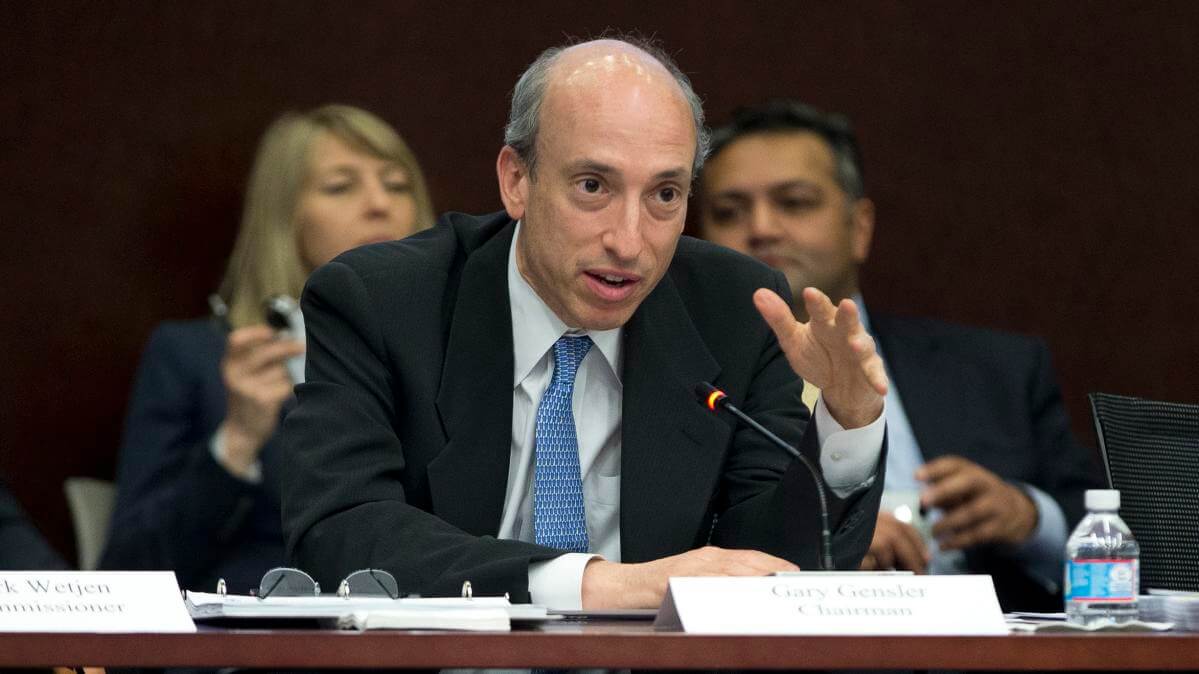Industry Leaders Demand SEC Chairman Gary Gensler’s Resignation
11.11.2024 19:00 2 min. read Kosta Gushterov
On November 8, the ongoing battle between Ripple and the SEC took a dramatic turn.
Chris Lacovella, CEO of the American Securities Association (ASA), publicly called for the resignation of SEC Chairman Gary Gensler. Lacovella, whose organization represents over 100 financial firms, voiced his demands as frustration with the SEC’s handling of crypto regulation reached a boiling point. Lacovella remarked,
“The people voted for this country to take a new direction, and Chairman Gensler should respect that vote by stepping down immediately.”
The call for Gensler’s removal quickly gained traction, with widespread support from the crypto community. A notable post on social media echoed the sentiment, stating, “Gensler must go immediately! After trying to regulate cryptocurrency, he proved that he doesn’t understand how the market works and is only undermining trust.”
The Ripple case has galvanized many to take a stand, with companies growing increasingly disillusioned with the SEC’s actions since 2021. In response to the commission’s aggressive litigation strategy and lack of clear guidelines, several businesses have either reduced their presence in the U.S. or halted new projects altogether. Now, even small banks and major traders are joining the chorus of discontent, with Wall Street also closely monitoring the situation.
While some crypto firms hope that these changes could lead to a better regulatory environment for digital assets in the U.S., only time will tell how this will unfold.
-
1
FTX Pushes to Dismiss Billion-Dollar Claim from 3AC
23.06.2025 15:00 1 min. read -
2
BIS Slams Stablecoins, Calls Them Ill-Suited for Modern Monetary Systems
26.06.2025 9:00 1 min. read -
3
ARK Invest Cashes In on Circle Rally as Stock Soars Past $60B Valuation
24.06.2025 19:00 1 min. read -
4
FTX Pushes Back Against $1.5B Claim From Defunct Hedge Fund 3AC
23.06.2025 11:00 1 min. read -
5
Trump’s ‘Big, Beautiful Bill’ Approved: What It Means for Crypto Markets
04.07.2025 7:00 3 min. read
Top Crypto Sectors in July: Meme, Staking, Gaming Lead
Meme coins are dominating the crypto market in July, outperforming all other sectors with a staggering 30.06% return so far this month, according to the latest data from CoinDesk.
Coinbase Strengthens DeFi Push With Opyn Leadership Acquisition
Coinbase has taken a major step toward expanding its decentralized finance (DeFi) presence by bringing onboard the leadership team behind Opyn Markets, a prominent name in the DeFi derivatives space.
Grayscale Urges SEC to Allow Multi-Crypto ETF to Proceed
Grayscale Investments has called on the U.S. Securities and Exchange Commission (SEC) to allow the launch of its multi-crypto ETF—the Grayscale Digital Large Cap Fund—arguing that further delays violate statutory deadlines and harm investors.
Robinhood Launches Ethereum and Solana Staking for U.S. Users
Robinhood has officially introduced Ethereum (ETH) and Solana (SOL) staking services for its U.S. customers, offering a new way for users to earn rewards on their crypto holdings.
-
1
FTX Pushes to Dismiss Billion-Dollar Claim from 3AC
23.06.2025 15:00 1 min. read -
2
BIS Slams Stablecoins, Calls Them Ill-Suited for Modern Monetary Systems
26.06.2025 9:00 1 min. read -
3
ARK Invest Cashes In on Circle Rally as Stock Soars Past $60B Valuation
24.06.2025 19:00 1 min. read -
4
FTX Pushes Back Against $1.5B Claim From Defunct Hedge Fund 3AC
23.06.2025 11:00 1 min. read -
5
Trump’s ‘Big, Beautiful Bill’ Approved: What It Means for Crypto Markets
04.07.2025 7:00 3 min. read


